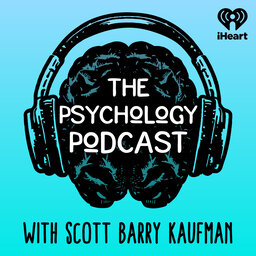Learning to Love Midlife w/ Chip Conley
This week Scott is joined Modern Elder Academy Founder and best selling author, Chip Conley. Scott and Chip discuss the joys of living in midlife, the importance of being a part of something bigger than yourself, and why life gets better with age.
In 1 playlist(s)
The Psychology Podcast
In each episode, we talk with inspiring scientists, thinkers, and other self-actualized individuals …Social links
Follow podcast
Recent clips

End of an Era — Reflections on 11 Years of The Psychology Podcast w/ Annie Murphy Paul
46:52

How Mindsets Shape Reality w/ Dr. Alia Crum
1:00:24

The Gentle Power of Sisu w/ Dr. Elisabet Lahti
48:45
 The Psychology Podcast
The Psychology Podcast